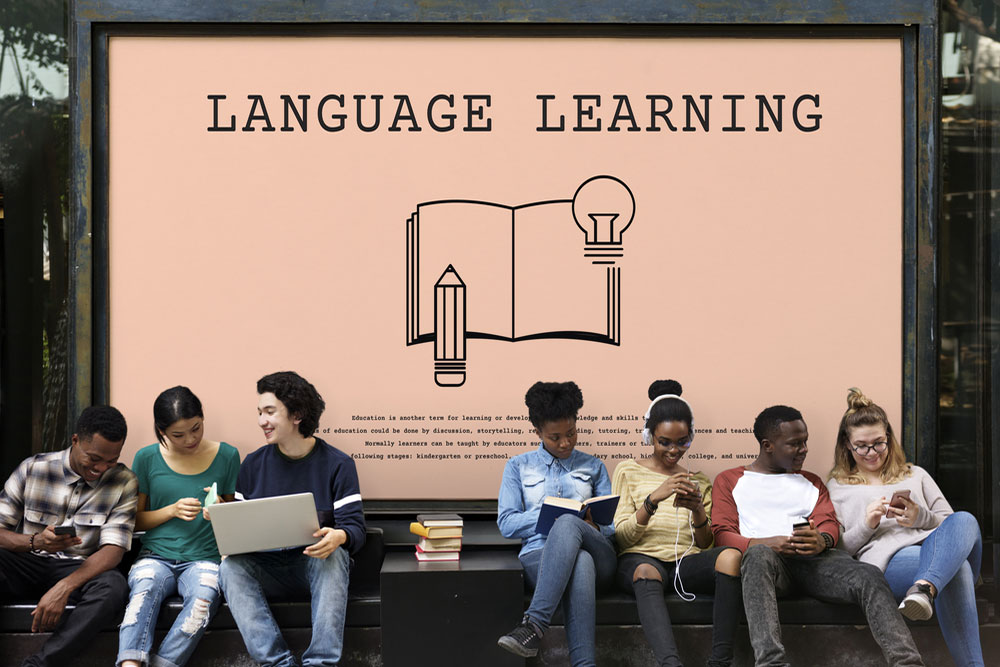You may have seen how quickly children learn new languages, almost to the extent that they appear like native speakers, and wondered why it’s so challenging for you, as an adult, to do the same. But while it’s quite true that kids pick up languages faster, learning to speak, read, or write a new language is quickly becoming a necessity for adults across the world.
Not only do language skills provide adults with competitive advantage, they also open the prospects of connecting with a wider set of people. Of course they can advance your career, but at the same time, they also create a deeper connect with new cultures, build confidence, and may even help get a new perspective. If you’re a bookworm, then you’d also have the added advantage of getting to read new authors in their native language. And if you’re a travel enthusiast, then learning new languages can help you get a better experience too.
But while the benefits of learning a new language are many, most adults are deterred by the fact that picking up the nuances of a new language is difficult, and often, very time consuming. However, science can help you understand just why an adult may find it more challenging to learn a new language, and can even offer up solutions that can ease the learning process for you.
Why learning languages is easier for children
At the very outset, you must understand that learning a new language is a huge exercise for the human brain. Language, any language, is a complex construct and involves processes that are linguistic, visual, and auditory in nature. At the core of mastering these processes lies the neural construct of the brain. Children have young, developing brains, so studies show that at this stage of life, they can make neural connections much faster, which helps them pick up not just new languages but also all sorts of things.This only serves to reiterate the need to provide kids with an education from an early age.
As you grow older, the neural pathways in your brain mature and the brain loses the plasticity it had at a younger age. This neural maturation has huge pros: It makes you more efficient, especially where repetitive tasks, habits, and motor skills are concerned. If honed correctly during childhood, neural maturation of the brain also provides you with better analytical skills, skill proficiency, and a concrete foundation for life.

On the flipside, it can make learning new things a bit more challenging. When it comes specifically to language learning, all the neural shortcuts your brain has taught itself during maturation can force you to fall back on the language or languages you already know, making it difficult to capture the exact sounds or phenomes of the new language. This is precisely the reason why you’re likely to find adult language learners speak with a heavy accent or get grammar wrong—the languages you’ve already mastered come in the way of picking up the new language perfectly.
New languages for adults: Not as difficult as they say?
So, what is even the point of trying to learn a new language as an adult if your own brain doesn’t support you? Because, as science suggests, it’s not as simple as that. More recent studies suggest that adult brains are more flexible than previously thought.
A 2019 study published in the journal Cognition, titled A Critical Period for Second Language Acquisition, reveals that learning ability is a hidden variable that’s difficult to measure directly, and may even differ from person to person depending on learning materials and tools. In fact, when adults and children are provided with the same level of learning material in immersion learning language programmes, adults perform better than children because they have the ability to consciously deploy learning strategies and transfer what they know about their first/native language to pick up the nuances of the new one.
Another study published in the Journal of Neuroscience in 2020, titled Converging Evidence for Differential Specialization and Plasticity of Language Systems, suggests that learning a new language as an adult actually reroutes the brain’s neural networks, and the two halves of the brain split learning functions. The study reveals that while language production stays limited to the left brain, language comprehension is flexibly shared across both hemispheres of the brain. By activating the entire brain, the process of learning a new language can improve memory and cognitive function—which in turn can help adults keep their brains active enough to fend off issues like cognitive decline, loss of memory, and other age-related cognitive issues.
This study clearly suggests that even if nailing the accent of a new language may be difficult in adulthood, learning it is far from impossible. In fact, if you choose to learn a language that has the same sound and structure as one you already know (say, learning Italian when you already know Spanish), you can become proficient very quickly indeed.

Tips to keep in mind
It’s quite clear then that if you’re an adult and want to learn a new language, you can do it even if some challenges do come up. This shouldn’t deter you in any way. After all, what is adulting without challenges anyways? If you do want to pick up a new language as an adult, keep the following tips in mind, and you may find your journey easier.
• Give it time. Learning a new language is a gradual process, so becoming impatient or giving up quickly is simply not the way to go about it. Remember that no matter what new thing you want to try, practice and repetition are the only ways to success.
• Enrol in a professional course or class, but make sure you spend enough time for self-study. Practice every day, twice a day, to make sure you pick up the grammar well.
• When it comes to language learning as an adult, the best technique is immersive learning. Every language is synonymous to a culture, so immersing yourself in it can speed up your learning process. Make sure you get enough reading materials, movies, and documentaries in the language to get exposed to every aspect of it. If you can find a friend or language exchange partner to practise with, even better!
• Get an app. Your phone is likely to be always with you, so getting a language learning app can help you stay on top of the learning process, while also making it more immersive.